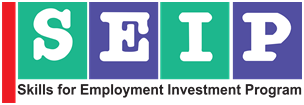BACKGROUND
- The economy of Bangladesh is growing steadily benefiting from reforms and
increasing openness. Annual GDP growth has accelerated from 4.1% in the period
FY1973-1978 to 6.2% in FY2008-2013. Excitingly, since FY 2015-16 Bangladesh has
been experiencing more than 7.0% GDP growth which crossed 8.0% in 2018-19 that
gives the country an aspiration to claim up to double digits. Literacy rate has
increased over past decades, so has school enrollment, and particularly girls
and women’s participation in education. Population and labor force is
predominantly young with more than a third in the 15-34 age group in 2010.
Bangladesh is well-placed to benefit from the demographic dividend up to 2050
and perhaps beyond due to decline in fertility rates which, combined with
effective policies and markets, triggers faster rates of economic growth and
human development
- This may be reinforced by the growth of labor productivity through skills
development and technological progress especially Information and Communication
Technology (ICT) driven move towards a knowledge economy. However, skill is
recognized after infrastructure and energy as the prime factor to industrial
growth, productivity, export diversification and producing high value products.
It needs to be mentioned here that the Asian Development Bank’s (ADB) Bangladesh
Country Partnership Strategy (for 2012–2016) identifies the low competitiveness
of firms as a key constraint to growth particularly the low skills and low
productivity of the workforce
- Foreign remittances play a very vital role in Bangladesh economy. Bangladeshi
expatriates are the main source of this remittance. But most of the Bangladeshis
working abroad are unskilled or semiskilled are sending very low remittance when
compared to South East Asian Countries. For steady and higher remittance
inflows, enhancement of skills of the aspirant migrant workers has no
alternative.
- To coordinate the existing skills development and training programs sporadically
being implemented by about 23 ministries and divisions, the Government has
formulated National Skills Development Policy, 2011. To run the skills
development programs in a holistic, coordinated and standardized way the
Government has recently established National Skills Development Authority (NSDA)
which will bring all skills development activities under one umbrella to ensure
uniform quality and standard across the country. Side by side with the
government’s fiscal support to the skills development programs additional source
of funding will be ensured through National Human Resource Development Fund
(NHRDF) which has already been established. Deserving public and private
training institutes will benefit from this fund to carry on their training
activities.
SKILLS FOR EMPLOYMENT INVESTMENT PROGRAM (SEIP)
- Asian Development Bank (ADB) signed a Multi-Tranche Financing Facility (MFF)
Agreement with Bangladesh Government in 2014 in order to support long-term and
comprehensive skills development efforts in Bangladesh assessing its potential
contribution to higher GDP growth by skilling and up-skilling a large number of
working age people in priority sectors. Swiss Agency for Development and
Cooperation (SDC) is also co-financing the program in the 1st.
- Finance Division is the executing agency of the SEIP project while three
Ministries (Ministry of Expatriate Welfare, Education and Industries),
Bangladesh Bank, PKSF and 13 Industry Associations are partnering with this
Division. Apart from this, BRTC under the Ministry of Ministry Road Transport
& Highways is working with this project to develop 1,00,000 trained< and licensed drivers to
drastically reduce road accidents. Support to Skills Development Coordination and Monitoring
Unit (SDCMU) is working as the implementing agency.
- The Skills Development Coordination and Monitoring Unit (SDCMU) is headed by the
Executive Project Director who is assisted by 04 Deputy Executive Project
Directors, 10 Assistant Executive Project Directors and a team of Specialists. A
Project Management Unit (PMU) is also working at Finance Division headed by
Finance Secretary. Policy issues are dealt by the PMU alongside overall
supervision of the project.
- ADB and SDC have been jointly financing the first tranche of the program and the
industry associations are also sharing a percentage of the total cost. SDC is,
however, not financing the second and third tranche activities due to their
internal policy changes. The total cost of SEIP project for the entire period
all three tranches (2014 to 2024) is estimated at BDT 3712.33 crore.
NUMBER OF COURSES WE OFFERED:
- PHP With Laravel Framework
- Big Data, Data Analytics & Data Science
Highlights:
- All the offered training programs are totally free.
- The minimum qualification to get enrolled in this training program is Diploma/
Bachelor / Final year student from any discipline of public or private
universities.
- One trainee can do only one training program under this project.
- Each trainee will be given allowance by the rules and regulation of the SEIP.
Trainee conveyance allowance (BDT100/trainee/day) and refreshment allowance (BDT
50/trainee/day) will be provided by SEIP through trainee’s mobile/regular
banking channel at the end of training and assessment on actual attendance
basis. It is to be noted that at least 80% attendance for each of the trainees
is required for being eligible for these allowances.
- Women and People with special needs are encouraged to apply.
These training programs will be implemented by PONDIT
Training Institute.


